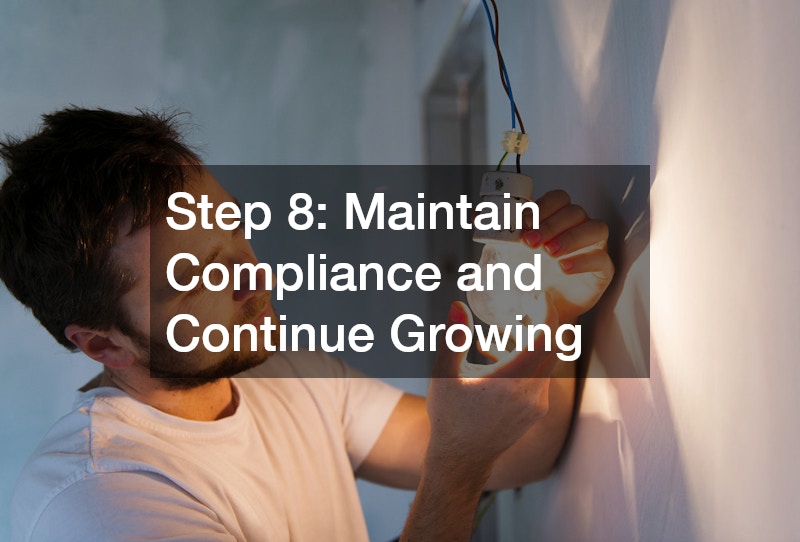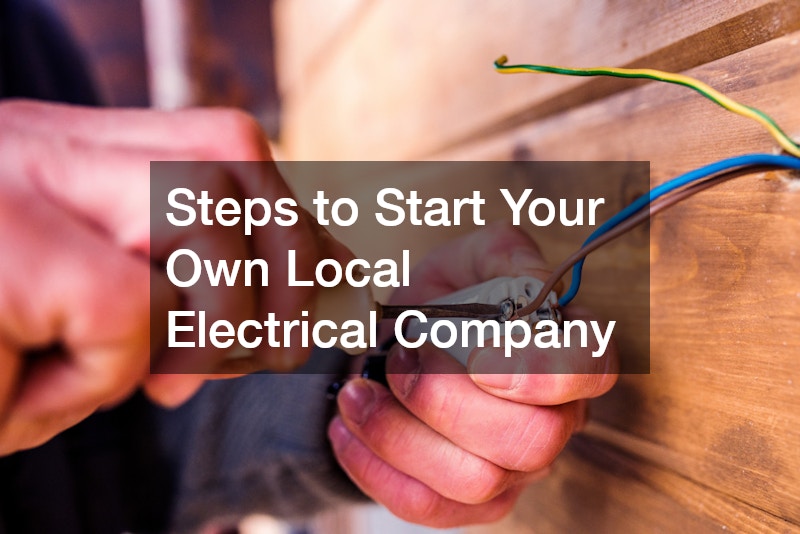Starting your own local electrical company can be a rewarding venture, offering financial stability and the opportunity to build a reputable business in your community. The electrical industry continues to grow as residential and commercial properties require reliable wiring, repairs, and installations. However, launching a successful company requires careful planning, proper licensing, and a commitment to safety and quality workmanship.
Step 1: Gain the Necessary Experience and Certifications
Before starting your business, you need the proper training and credentials. Most electricians begin their careers as apprentices, working under a licensed professional to gain hands-on experience. Completing an apprenticeship program and obtaining a journeyman electrician license are crucial. After gaining sufficient experience, you can pursue a master electrician license, which allows you to operate independently and take on larger projects.
Certifications and licensing requirements vary by state, so research local regulations to ensure compliance. Having the right credentials not only meets legal requirements but also builds trust with potential customers.
Step 2: Develop a Business Plan
A well-structured business plan is essential for securing funding and outlining your company’s goals. Your plan should include:
- Business Structure – Decide whether your company will be a sole proprietorship, partnership, or LLC.
- Services Offered – Determine whether you’ll focus on residential, commercial, or industrial electrical work.
- Market Research – Analyze the local demand for electrical services and identify your competitors.
- Financial Plan – Outline your startup costs, projected revenue, and pricing strategy.
- Marketing Strategy – Plan how you will attract and retain customers, including branding and advertising.
A solid business plan will guide your decisions and help you stay focused on long-term success.
Step 3: Obtain the Necessary Licenses and Insurance
To operate legally, you must register your business and obtain the required licenses. Common permits and certifications include:
- Electrical Contractor License – This authorizes your company to perform electrical work.
- Business License – Required for legally operating a business in your city or state.
- Liability Insurance – Protects your business from damages or injuries that may occur on the job.
- Workers’ Compensation Insurance – This covers employee injuries if you plan to hire staff.
Proper licensing and insurance protect both your business and your clients, ensuring professionalism and compliance with industry standards.
Step 4: Purchase Equipment and Tools
Investing in high-quality electrical tools is essential for efficiency and safety. Some must-have items include:
- Multimeters and voltage testers
- Wire strippers and cutters
- Conduit benders
- Power drills and saws
- Insulated gloves and safety gear
Additionally, you may need a company vehicle to transport tools and materials to job sites. Consider leasing or financing equipment to manage upfront costs while maintaining cash flow.
Step 5: Set Up Your Business Operations
Creating a strong operational foundation ensures your company runs smoothly. Key aspects include:
- Business Location – Whether working from home or leasing office space, having a dedicated workspace is essential.
- Accounting and Invoicing – Use accounting software to track expenses, send invoices, and manage payroll.
- Scheduling and Dispatching – Invest in scheduling software to streamline job assignments and appointments.
- Supplier Relationships – Build connections with wholesalers to secure discounts on electrical supplies.
Efficient operations improve customer satisfaction and help your business scale over time.
Step 6: Build Your Brand and Market Your Services
To attract clients, you need a strong brand and marketing strategy. Steps to establish your business include:
- Create a Logo and Website – A professional website and logo enhance credibility.
- Register on Online Directories – List your business on Google My Business, Yelp, and industry directories.
- Use Social Media – Share project updates, client testimonials, and promotions on Facebook, Instagram, and LinkedIn.
- Leverage Local Advertising – Invest in digital ads, flyers, and vehicle branding to increase visibility.
Word-of-mouth referrals play a significant role in attracting customers, so focus on delivering excellent service and encouraging satisfied clients to leave reviews.
Step 7: Hire and Train Employees
As your business grows, you may need additional electricians and office staff. When hiring, look for:
- Licensed and experienced electricians
- Strong work ethic and customer service skills
- Willingness to adhere to safety protocols
Providing ongoing training ensures your team stays up-to-date with industry advancements, leading to high-quality workmanship and customer satisfaction.
Step 8: Maintain Compliance and Continue Growing
Staying compliant with industry regulations is crucial for long-term success. Regularly update your licenses, insurance, and certifications to avoid legal issues. Additionally, consider expanding your services, such as offering smart home installations or solar panel wiring, to increase revenue opportunities. Networking with builders, contractors, and real estate professionals can also lead to new business partnerships and steady work.
.


